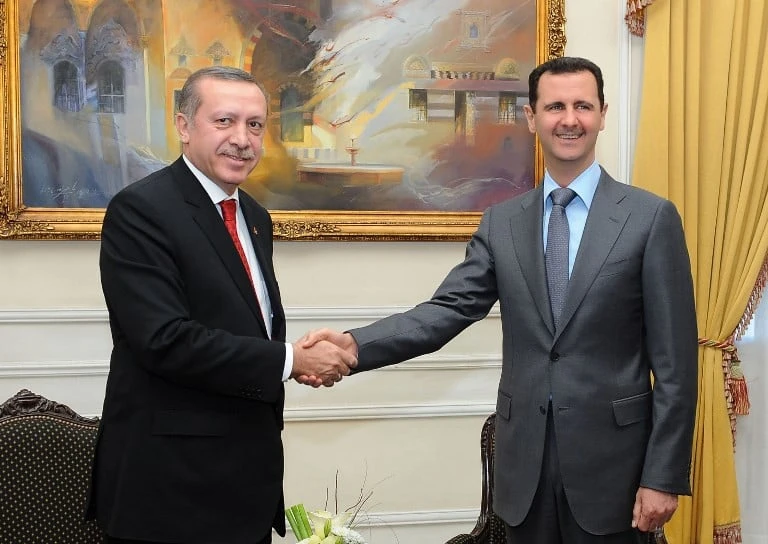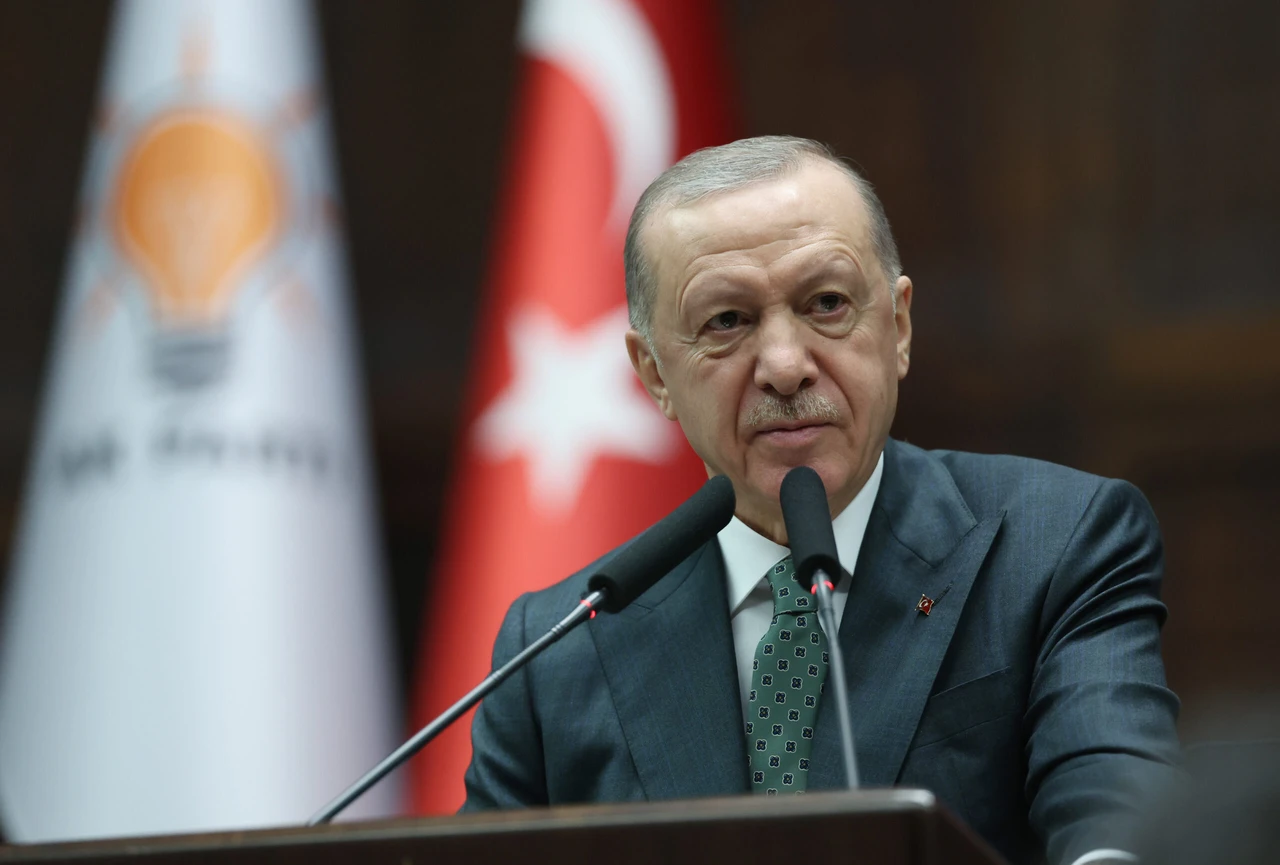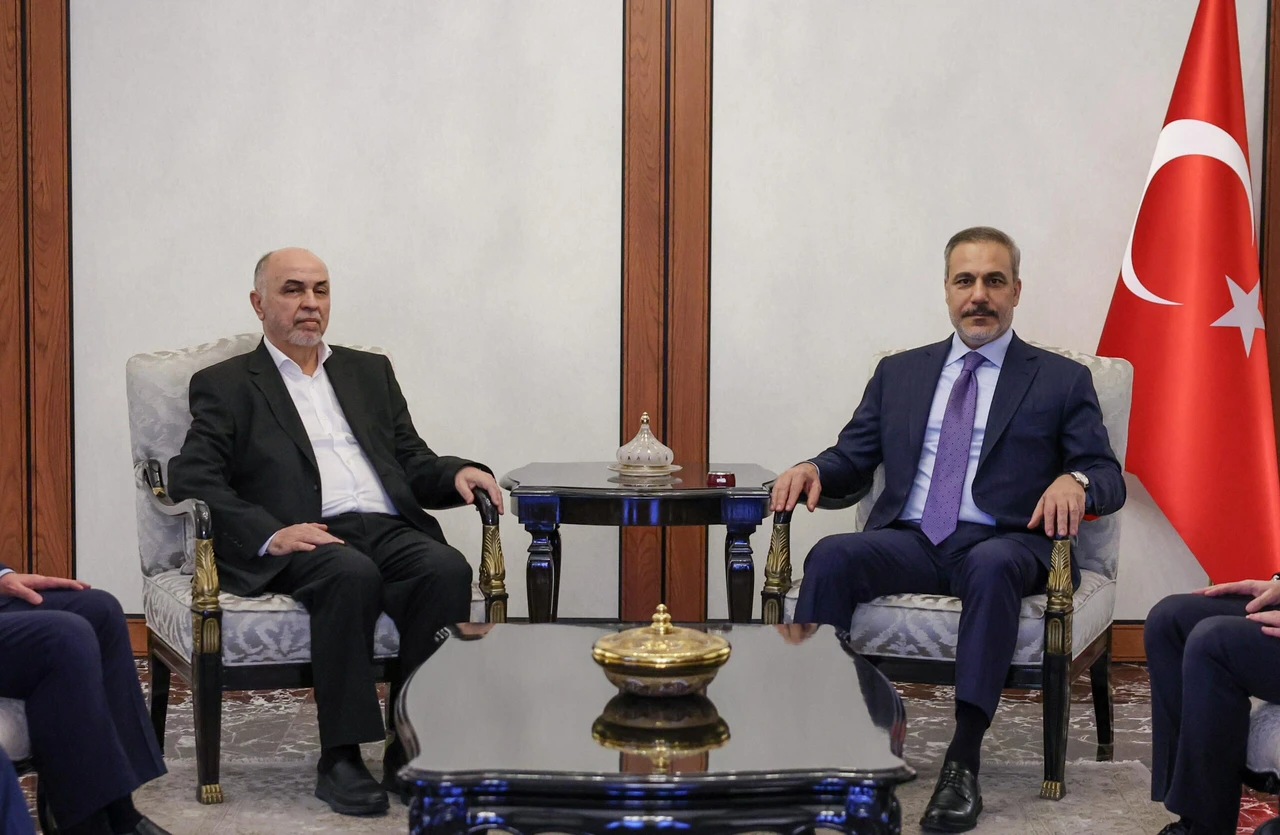Terrorism, refugee crisis on agenda of Türkiye-Syria normalization talks
 Erdogan open to meeting Assad to restore Turkey-Syria relations, Damascus, December 22, 2009 (AFP Photo)
Erdogan open to meeting Assad to restore Turkey-Syria relations, Damascus, December 22, 2009 (AFP Photo)
After over four years of technical and intelligence discussions between Ankara and Damascus, a new phase is set to begin with a meeting between President Recep Tayyip Erdogan and Syrian regime leader Bashar Assad.
Erdogan plans to discuss the safe return of refugees to Syria and emphasize to Assad: “Do not allow the (terrorist group) PKK to establish a rogue state on your territory.”
The goal is to arrange a meeting between the two leaders by September in a neutral country such as Russia or the UAE.
Over the past four years, more than 14 intelligence-level meetings have taken place between Türkiye and Syria. These talks have been sabotaged by actors influential over the Syrian regime, and the desired outcomes were not achieved.
The developments following Israel’s massacre on Oct.7, incidents along the Golan and Lebanon lines, and the recent attempts by the PKK to establish a rogue state in Syria have prompted Türkiye to take action.
A turning point in the process was the visit by Foreign Minister Hakan Fidan to Moscow on June 10-11. During his meetings, Russian President Vladimir Putin indicated that the complete withdrawal of Turkish troops from Syrian soil should not be a precondition for the Erdogan-Assad meeting. Following this, Assad expressed support for Putin’s stance and indicated readiness for discussions.
In a significant step, Putin’s special envoy Alexander Lavrentiev was sent to Damascus. Lavrentiev discussed with Assad the details of opening a new chapter with Türkiye and the planned meeting with Erdogan after 14 years.
Syrian strategist Dr. Basel Haj Caseem highlighted that both Türkiye and Syria agree that the civil war has caused the greatest harm to their nations. He emphasized the necessity of normalizing relations between Damascus and Ankara to end the war, which has devastated Syria, plundered its resources and led to severe economic, social and cultural crises.
“Similar losses related to the PKK and refugees apply to Türkiye. Given its geographical position and power, Türkiye acts as a bridge. Unlike Iran, Türkiye does not have a sectarian agenda. The Gaza massacre and developments in regions like Lebanon and Cyprus have shown all parties that the region faces a significant threat. The Erdogan-Assad meeting cannot be viewed in isolation from these events,” Dr. Caseem noted.
Dr. Caseem suggested that the location and time of the meeting could be finalized in Astana and that this interaction would resolve about 70% of the issues, marking the beginning of normalization.
A Syrian Member of Parliament (MP), who wishes to remain anonymous, stated that his country’s need for Türkiye is far greater than Ankara’s need for Damascus, noting: “Assad has softened his previous insistence on ending Turkish military presence. A trust-based dialogue period is necessary to make up for past losses. Our disconnection has been weaponized by third countries, and we are both being struck with this weapon.”
“The PKK issue is a national security matter that Syria must resolve quickly. This crisis, which also closely concerns Türkiye, can be overcome together. Meanwhile, the refugee issue, which needs to be discussed between Ankara and Damascus, has become an internal matter for Türkiye in recent years. This situation alone is enough to illustrate the threat and danger we face,” the MP concluded.



